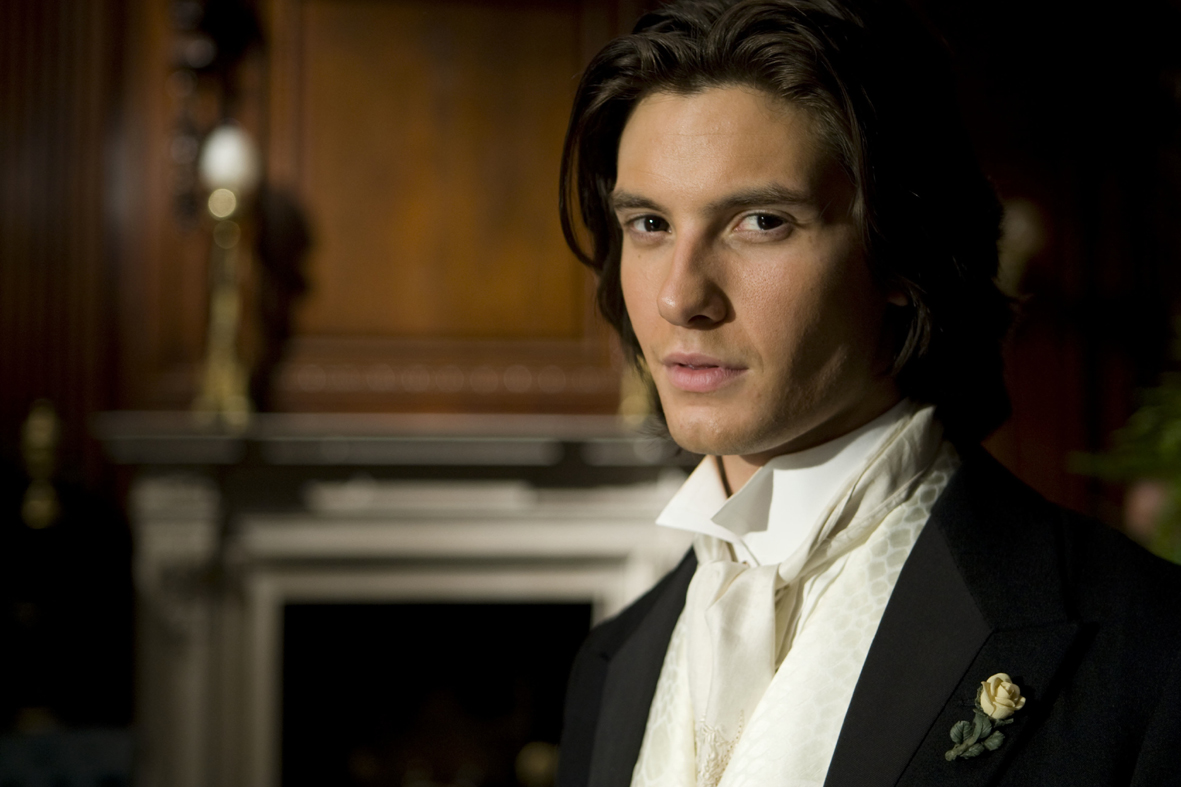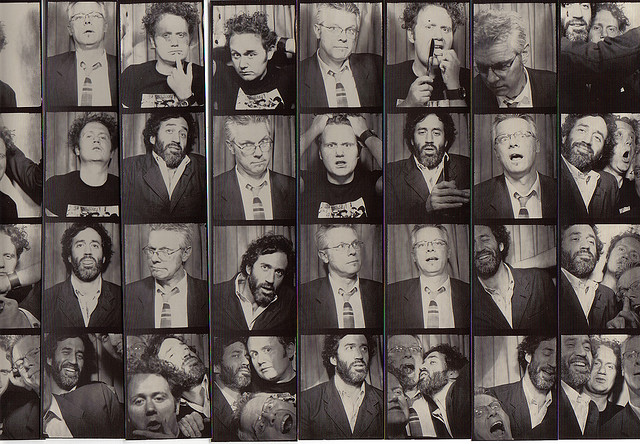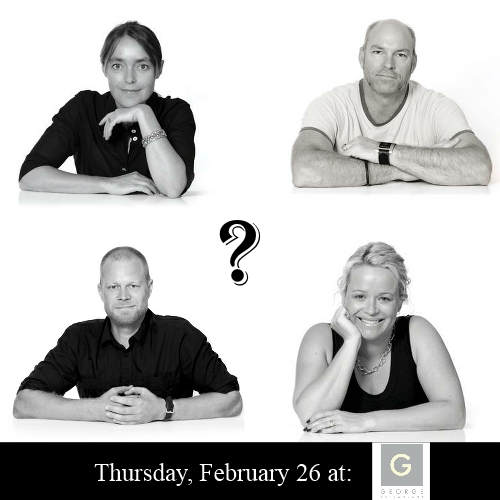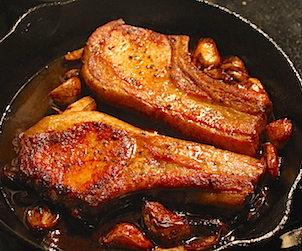In the third of an thirteenth (and wildly popular) series, we interview some of the most talented up-and-coming Sommeliers in Ontario (and as is the case this month, occasionally elsewhere). A few years back I was flicking through the pages of a locally published periodical and noticed that when it came to Sommeliers it was the same names that seemed to pop up over and over again. I was also becoming gradually cognisant of the fact that we more established wine folks were well and truly “losing our edge” to these young blood Sommeliers. Being well aware of the depth of new talent that was out there I finally decided to get together with a couple of fellow Toronto Sommelier “Old Guard” (Anton Potvin and Peter Boyd) to assemble a line of questioning that would give us an entertaining insight into the minds of these rising stars.
This month week we speak with a chap whose roots are originally Ontarian, but his career has seen him take on prestigious positions in the UK, Italy, and New York City : Mister Matthew Orawski.
Good Food Revolution: So Matthew, what is it that you are doing these days? (Your position, and what that role entails)
Matthew Orawski: I am the Head Sommelier of Del Posto restaurant in Manhattan, New York. My role involves working on the floor of the restaurant and assisting people with their wine selections, updating and adjusting the wine list (on a daily basis….we have over 65,000 bottles), and along with the rest of the sommelier team, I help to educate the front of house staff on wine and spirits; as well as the public with a bi-weekly event we call ‘5 for 5,’ where we offer 5 glasses of wine for $5 and while tasting them with the public we tell them the stories behind the wines and the families that make them. I also count bottles on a monthly basis for inventory, which is the less glamorous part of the job.
GFR: And what kind of experience and training did you have before doing what you do today?
MO: I started studying with the Wine and Spirit Education Trust (WSET) in Ottawa while working in restaurants; I have since worked my way up to the WSET diploma, and hope to begin my Master of Wine in 2017. In addition to education in books I also had opportunities to work abroad in some amazing wine regions and markets.
I left Ottawa in 2013 to live and work in Piemonte. I worked for the Boroli family in Barolo on their hotel property that was conveniently located in the vineyard in which they sourced their Barbera, Arneis and Moscato. That experience was both difficult and important for me. Difficult because I didn’t speak Italian and everyone I worked with did not speak english; but important in growing my understanding and appreciation for Barolo and the region. The white truffles didn’t hurt either. It sounds bizarre to say it, but perhaps the most important lesson I learned was how small wine regions like Barolo are. Growing up in Southern Ontario everything seems big and far away; living in Barolo I quickly realized that all the hillsides I had studied were tiny and a stone throw apart.
Living and working in London was very important for my growth in my career and my knowledge. I will never forget my first day at the Ledbury restaurant. In a rare occasion the restaurant had been bought out for a private birthday party, and my first job of the day was to open all of the 1st Growth Bordeaux wines from 1961 to 1978 out of double magnums. Needless to say, it was a very good first day. Tasting wines like that became a daily occurrence so the experience helped to train my palate.
GFR: You have worked in a number different types of places, in Canada, the US and in the UK? How would you say that the three countries differ when it comes to restaurants?
MO: Well Canada and the US are very obviously tip cultures. Working in the UK marked the first time I was paid salary to work in a restaurant. It was incredibly different; but for me I thoroughly enjoyed it because people that work in restaurants in the UK are doing it because they really love it. The result there is a work environment filled with passionate professionals that are all working towards the same goal. With Canada and the US I have worked with a lot of talented people, but also a lot of people who are clearly in the restaurant business strictly because they make tips. I fully support the movement away from tipping in North America and would love to see the business move toward equal pay for Front of House and Back of House.
GFR: And wine culture as a whole (between the three places)?
MO: The wine cultures are very very different. London has always been an importer of wine from every part of the world; so anything you want to drink and taste is available, from great Burgundy to high end Sake. The UK has always been a Bordeaux-loving country, and there are a lot of fantastic Chateaux made available in all the London wine shops. I also loved that all of the importers of wine had their own wine shops with enomatic machines so you can taste from the entire portfolio on site; makes for great blind tasting practice without the worry of purchasing a lot of bottles. New York is much the same as London, but the ocean makes the tax a little higher and the European wines slightly more expensive to purchase. As for the wine culture in Canada, it is still pretty young and experimental. When I am home visiting my parents they always try and drink local wines from the Lake Erie shores; much like a lot of Ontario. I think Canadian’s are experimenting a bit more, but in Ontario at least, they are at the mercy of the LCBO and the products that they choose to bring in.
GFR: Now, how do I word this? Have you drunk the Natural Wine Kool Aid? I’m just kidding, how do you feel about the scene? It’s growing on me, gradually… like a benign fungal infection… and leads me into all sorts of heated discussions on Facebook.
MO: Natural wine… I have had a lot of it. And just like a lot of regions and styles of wine, I think there are great examples of natural wines and there are terrible examples of natural wine. At Del Posto we pour Gravner’s ‘Anfora’ Ribolla Gialla 2004 by the glass. He’s biodynamic and organic and his wines with age are something special. I wouldn’t say that natural wine is something I search for though.
GFR: What makes for a good agent/supplier in your mind?
MO: They listen to us when we ask for certain needs; and they are able to bring us things last minute when we forget to reorder.
GFR: And what makes for a bad agent?
MO: They don’t listen… Our list consists of only Champagne and Italian wines, so when someone brings me a french wine to sell, well I will gladly taste them, but I won’t buy them.
GFR: How do you feel about Canadian wines? Any current favourites?
MO: Canadian wine, much like our country is still young and still experimenting; but there are a number of great producers who rival some of the best in the world. There are also number of people making wine as a retirement project, which is fine, but also shows through in it’s lack of understanding and experience; but they sell, and people still love them. My favourite wine, and in my opinion one of North America’s best producers is Norman Hardie. His County Chardonnay for me is the best Chardonnay in Canada and America. He’s also just a great guy. I also love the wines of Joie Farms and Tawse Winery.
GFR: What do we do well in Ontario, in your mind, and for your palate?
MO: Well as the last few years have shown, the cold can really mess with our vintages; but my favourite wines of Ontario are Chardonnays, Rieslings, and a few Cabernet Francs and Pinot Noirs, but the last two seem to be way too dependent on the weather year to year.
GFR: And what do you feel we should give up on?
MO: Trying to plant trendy grapes like Cabernet Sauvignon. We just don’t have the heat and sunlight hours to properly ripen these grapes year to year. Also, non vinifera grapes should be gone; we don’t need Baco Noir and Vidal. Not related to grapes, I’d like to see the LCBO open the market and allow others to sell wine; I think it would be so beneficial to so many people.
GFR: Is there much of an understanding of Canadian wines in NYC and the UK?
MO: Nope. It makes me proud when I head to a wine shop and see a bottle of Canadian wine, but it is rare. I have seen a few Canadian labels on lists in NYC, but people still think of us as the land of Icewine; it’s also difficult to defend Canadian wine, when a bottle costs over $30 and who is going to pay $30 for a wine they know nothing about?!
GFR: Just as there is from everywhere in the world, there is quite a lot of dreadful wine coming from Ontario also. How do you feel about the issue of people simply promoting something because of it being local, and not because of its quality?
MO: I agree. As I mentioned a lot of vineyards in Ontario strictly exist for local and tourist consumption. There is nothing wrong with that, people love it and drink it. I guess I just get frustrated because I see the potential of so many sites and the wines can be so disappointing. And so many vineyards are run by former farmers or retirees; and they don’t understand that the super fertile soils and huge yields don’t make good wines; but who am I to tell them that?!
GFR: How aware of wine were you whilst growing up? Were you around wine from an early age?
MO: My father’s parents are European. Wine was always on the table. We weren’t encouraged to drink it, but we also weren’t discouraged. I never really liked it or understood it properly when I was young, obviously. The first thing I ever drank though was a Cognac that my grandfather let me try when I was around 8…it was rough and definitely not enjoyable then; ironically I love Brandy now.
GFR: Can you remember your first taste of wine?
MO: My first taste of wine would have been something from Colio Estate Wine or wine that my grandfather made himself (he loved both equally as much).
GFR: When do you feel children should be introduced to the wonderful world of wine?
MO: As soon as they want to. As I said before, my parents never discouraged us, and that allowed us to try things to see if we liked it, in a very responsible way. I think that was important not just in the way I viewed alcohol but eventually with the idea of trying something, and if I didn’t like it, perhaps I should try it again later in life, and I might think different of it: for example tequila. I had a pretty rough introduction to it in University, but I love it now.
GFR: When did you first decide that you would like a career in wine?… and was it with a view to being a Sommelier yourself?
MO: Well I guess it after university when I finished my degree, which I enjoyed, but thought to myself, ‘if I can get paid to drink wine and travel the world doing it, that would be amazing.’ And so, I decided on that. Sommelier is a career that will take you anywhere you are willing to travel; I took advantage of that and I still am.
GFR: So who or what gave you your first insight into the world of wine?
MO: Well my introduction to French wine was something that I will never forget. Before that I drank a lot of cheap and poorly made Canadian, Australian, and Californian wine. That understanding of Old World winemaking changed me and my view on wine in general. The idea of complexity and nuance over obvious fruit character will always be more interesting to me.
GFR: The Sommelier world is notoriously full of pretentious arseholes, and after seeing that film Somm I worry about the emergence of a new wine Bro culture… I’d love to hear your thoughts?
MO: It certainly is full of them. And that is fine, it’s their choice to be that way. I have always felt that being a sommelier is not about me, but about the person whom I am dealing with. If I didn’t care to do my job correctly I would only sell people Champagne, Northern Rhone and German Riesling; but that’s not what being a sommelier is. The job is to listen to people and translate their words into a bottle of wine that they will enjoy. I am personally not a fan of fruit forward New World wines, but if someone is describing just that to me, it’s not my job to tell them they are wrong and shouldn’t drink it because I don’t like it. Somm has definitely made the world look at wine differently, but I think it has helped to let people trust Sommeliers more. There is also just a difference in working in Europe as a sommelier then working in North America. Sommelier’s in North America tend to be younger, and especially in NYC, a little spoiled. They never had to go through the process of learning and selling wines in all categories. I have the pleasure of opening and selling amazing bottles like Bruno Giacosa Barolo and Barbaresco Riserva and Giacomo Conterno Monfortino from a lot of different vintages, but it wasn’t always that way; I also sold Lindemans Bin 65 and Wolf Blass when I was younger. I certainly think that by not having the experience of selling all types of wine younger sommeliers a bit pretentious, but not all, thank god.
GFR: Which wine regions have you had the opportunity to visit?
MO: Well all the regions of Ontario, obviously; I grew up on Lake Erie, and my aunt lives in Niagara. Living in Europe I had a lot of opportunity to travel and taste with wine makers. I have been to Champagne, Burgundy, Rhone Valley, Provence, Tokaj, Friuli, Chianti, Liguria, and lived in Barolo for awhile.
GFR: Have you ever made your own wine?
MO: Not mine, but I helped Jean and Pierre Gonon at Domaine Pierre Gonon make their’s in 2014; that was an amazing experience. I wanted to work a harvest in my favourite red wine region and I contacted Jean. He invited me to join. I picked grapes for a week or two, and half way through the harvest Jean had me work in the cellar to help with starting fermentations, pumping overs and pretty much all the processes required to make their wine. It was unnecessarily nice of them and extremely educational.
GFR: And where would you like to make wine (in a pipe dream)?
MO: France. Northern Rhone again, but I would settle for anywhere in France.
GFR: So do you prefer to manage people or bottles and why?
MO: It depends on the day. Some days I have no problem sitting in front of a computer and inputing numbers and editing the wine list; but other days I really enjoy teaching and discussing wine with the staff. So now that I have circled around that question completely I will say, people.
GFR: What have been your career highs and lows?
MO: My career high was working in London at the Ledbury. When I starting working there they were rated #16 on the San Pellegrino World’s 50 Best Restaurant list. During my time and working with some amazing professionals such as Chef Brett Graham,the GM Darren McHugh, and fellow sommelier Terry Kandylis, we would try and push our levels of service and standards to the best, and we were rewarded when we were named #10 on the list the following year. That was an exciting goal. Other career highs include meeting and tasting wine with winemakers such as Pascal Agrapart, JL Chave, Jacques Carillon, Hubert Lamy, and hosting dinners with Angelo Gaja and Gianfranco Soldera. Lows, well I thankfully haven’t had any that I can think of at the moment.
GFR: Who is, in your mind, a real role model for Sommeliers?
MO: The best sommeliers I have worked with have close relationships with the chefs of their restaurants, and I have always tried to be that way too; so for me the best role models are the chefs I have worked with. I’ve had the luck of being surrounded by talented chefs such as Matthew Carmichael, Walid El-Tawel, Brett Graham, Steve Darou, Ben Ing, Mark Ladner. Every one of those chefs has had an important influence on my career and either how I perceived it, or where I found myself next.
GFR: And for Wine Agents/Importers?
MO: Role models for the Agents and Importers would be the winemakers. The best wine makers are inspiring in their hard work and dedication and the Agents and Importers should not only respect that but represent that for them.
GFR: Do you have nightmares about working with wines? I do… regularly… and it usually involves being unable to find bottles in a cellar… and the clock is ticking away… in fact I had one last night!!! And I haven’t been in the role for over six and half years!!!
MO: I have had many restaurant nightmares; from not being able to find the correct bottle, to being sat table after table after table and never being able to get to them all. And it seems that these dreams are the ones that never end, and even after waking the stress seems real. I haven’t had one in a very long time, so lets hope tonight is no different.
GFR: Oh yes… the tables one… I get that one too.
Sommeliers famously have their Sundays off… What’s your idea of a perfect Sunday?
MO: That is ironic, I never get Sunday off?! I never minded it though because Sunday was always the industry’s “Saturday night,” so many after work parties exist on Sunday. I would love to be watching football all Sunday long though.
GFR: Where are your favourite places to dine and drink.. perhaps tell us a hidden treasure of one of the cities you have worked in?
MO: In Ottawa, I’ve always loved Whalesbone, but new favourites such as Mena and Fairouz are outstanding restaurants. In London, the best place to eat is St. John; and I loved to get drinks at a rum bar called Trailor Happiness on Portobello Road. My favourite New York restaurants are the Nomad, Buvette, and Rubirosa and the best cocktail bars are the ones that don’t have phone numbers or signs: Atta Boy and Dear Irving, along with Dead Rabbit.
GFR: Do you cook yourself? What’s your favourite dish to cook these days?
MO: I have been in restaurants now for 14 some years; I have not had too many opportunities to make dinner. I’m good at making breakfast though. My french toast is pretty great, but its really my dad’s recipe, so I can’t take any credit.
GFR: And have you had any cooking disasters recently?
MO: Well I’ve been in New York for about a year now, and the kitchen in the apartment is for show, really. I just order Thai food from below my apartment, or food from Maple online.
GFR: Do you hang about with other Sommeliers?
MO: All the time.
GFR: Where do you go if you need to get your wine or cocktail on?
MO: It depends. After work we usually go straight across the street because its super close, and the whisky is always cheap. If we feel like being wine geeks, then Pearl and Ash has incredible wines at really reasonable mark ups.
GFR: What would you be doing if you were not doing what you are doing today?
MO: Probably working as an architect or in an art gallery. That is what I originally studied, and really, art and wine have a lot of common links throughout history.
GFR: What are your thoughts on music in restaurants?
MO: I’m torn. I’ve worked in restaurants where we didn’t have music, which was so bizarre at first, but amazing as it was great to hear the room fill up with sound from the guests. Music can be really great to helping set a mood in a room though. I am for it, as long as it doesn’t sound like a dentist office or an elevator.
GFR: Do you have a favourite food/wine related scene in a film/movie or show?
MO: I have a few, but perhaps one of favourites is Steve Martin’s cameo in the Muppet Movie. The scene is Kermit and Miss Piggy out to dinner at a fine dining restaurant. Kermit has ordered a bottle of sparkling wine and Miss Piggy is calls it ‘Champagne.’ Steve Martin plays the sommelier who is quick to correct her by saying “Not exactly. It’s Sparkling Moscatel, one of the finest wines from Idaho!” It’s funny, but also what plays in my head every time some one calls Cava or Prosecco “Champagne.”
GFR: Do you have many non-industry friends… how do they feel about what you do for a living?
MO: I have a few. They aren’t envious of my schedule or hours, but they are blown away at the things I get to taste on a daily basis, and just the fact that I am paid to taste wine.
GFR: What are your thoughts on blind tasting wine?
MO: It is the only true way of assessing a wine. I am all for it.
GFR: Are you a better blind taster with or without a bad hangover? I’m definitely the former…
MO: Well I don’t have an answer to that. I find if I am hungover a little taste of wine helps; but I don’t know if it helps with assessing the wines… they always taste higher in alcohol when I am hungover. I’ll say I am better sober, I guess.
GFR: What’s your current favourite wine region?
MO: It’s summer and hot, so I am going to say Wachau, Austria for some of my favourite dry Rieslings; specifically from Weingut Knoll.
GFR: In your mind, as an Sommelier, what is “hot” in the world of wine right now?
MO: Well drink wise, I think people are just more willing to adventure. The idea of not drinking Chardonnay, and only drinking Pinot Grigio is fewer than normal. That being said, people seem to really be enjoying obscure and seldom tasted regions like Sicilia. Some great old vine Nerello Mascalese from Benanti or Salvo Foti can give people a wine with a similar body to Pinot Noir, but more interesting texture and slight smoke from the volcanic soils of Mount Etna… and yes, these wines are natural wines; but they are some of the better ones out there.
GFR: And what’s not so hot? What has fallen out of favour?
MO: I find Bordeaux and Burgundy are being passed over because of price; but I still love them both. People have a difficult time justifying the price tag, but if you know your chateaus and crus you can find some great deals.
GFR: When it comes to wine is there anything that you feel is overrated?
MO: Any wine that has a giant price tag but is one dimensional; I know that is broad, but wine is getting increasingly expensive and some times for no reason. Nothing makes me happier than finding an amazing value out of a wine. Non-wine related, I would say that wine apps need to stop. I actually had a guest pick out four wines on our list and have me bring them over to the table so he could use his vivino app; he scanned them all and went with the highest rated wine on the app… surprisingly he didn’t like it; for his second bottle I brought over something closer to what he described and refused to let him scan it. He loved it. Please everyone, stop using apps and talk to your sommelier! Also, Robert Parker and point systems need to go. They get misinterpreted and people need to just experiment on their own and find the wine they like and not the one someone else does.
GFR: Interesting… I had never thought of wine apps being used in that way before.
What is your favourite wine pairing right now, something nice and seasonal?
MO: Well at work we have a dish called Vitello Tonnato. It’s a dish that has origins in Piemonte. There are a few different versions of it, but the main ingredients are always veal and tuna which represents the trade between Piemonte, which is known for veal, and Liguria, which is known for seafood and tuna; the veal is slowly braised and sliced thin and chilled; the braising jus is mixed with tuna to create an emulsion that is placed on top of the veal. My favourite pairing with this dish is a rose Champagne from Benoit Marguet called ‘Shaman 12.’ Chardonnay dominant with Pinot Noir, and all fruit sourced from Grand Cru villages of Bouzy and Ambonnay.
GFR: Okay… three pairings with me on the spot?… this time with… British fictional characters
What would you suggest to pair for them wine or beverage-wise… and why?

1: Sherlock Holmes
MO: I feel like Sherlock homes would drink a peated scotch; perhaps an Ardbeg on the rocks to go with the pipe he smokes.
2:Dorian Gray
MO: I feel like this guy has been through a lot and has a lot of issues; maybe something really strong, an Old Raj gin martini, extra dry with no garnish.
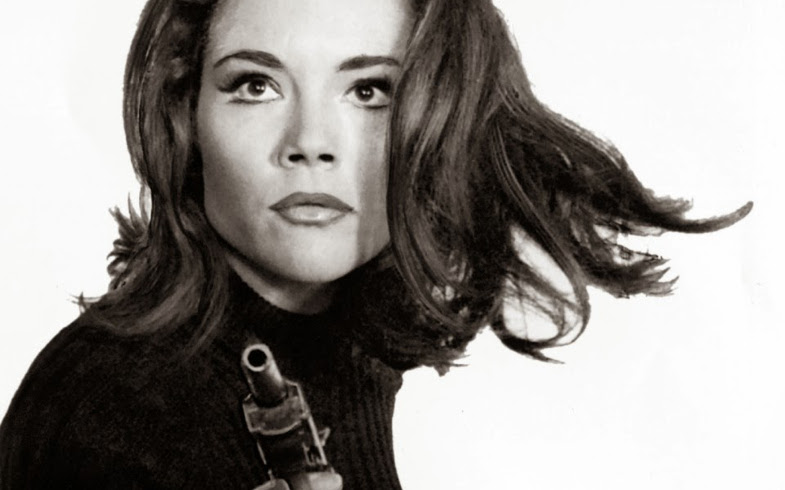
- Emma Peel
MO: What would a female spy drink? James Bond drinks martinis and Champagne; perhaps Champagne would be a great options, or a Last Word: Chartreuse, gin, maraschino liqueur and lime juice; in fact I’d like one of those right now.
GFR: Do you often drink beers or spirits?
MO: Spirits. I’m not a huge fan of beer; don’t get me wrong, I can enjoy a good beer, but it’s probably the last thing I order. For me, Scotch, Rum, Tequila, Gin, Brandy… well pretty much any spirit I guess.
GFR: What is your least favourite part of your job as a Sommelier?
MO: The hours. The days are long and always at night. It makes it difficult to get together with friends and family; especially on holidays because restaurants are always open.
GFR: What is your weapon of choice when it comes to a corkscrew?
MO: Pull taps, or a Durand for old bottles.
GFR: And your thoughts on the Coravin system… has it changed the playing field?
MO: Well it’s allowed restaurants to put some older vintage and higher end wines on the list by the glass, while lessening the price and wastage. They are great systems, but I have found the results to be inconsistent.
GFR: Speaking of which, where do you stand on the screwcap vs. cork debate? And how do your customers feel about that?
MO: I am a romantic at heart. And functionally cork is just a better way to allow wines to age and evolve over time. Is there a risk of spoilage, yes, but not if wineries take proper precautions. In fact, Roberto Conterno from Giacomo Conterno wines has a new machine that properly disinfects the cork eliminating corked wines; and he has been using this on his Monfortino over the last few releases. I am okay with screw cap closures as long as it is a white wine that requires no age. We don’t any screw caps on our list that I can think of, so the guests have never commented. I did however get into a very long conversation about cork and screw cap with a friend of a friend, and I got a little preachy.
GFR: Due to us being around alcohol, many people in our industry often have quite the increased tolerance for wine/booze, or they develop issues. What is your limit and how do you keep yourself in check?
MO: Well in my younger days I drank alcohol differently both in pace and styles. Now, I rarely drink outside of work, which is a funny sentence to say?! I have always known my limits, but don’t get me wrong, I have definitely drank way too much on several occasions, but never to a point of it being an issue. I think as long as you are around good people the drunkness level never becomes a issue, and by that I mean an addictive issue.
GFR: Have you ever been “cut off”? If so, where and when was the most recent time?
MO: Nope. Making great friends in bartenders means not being cutoff, and working in a restaurant has helped to raise my tolerance. I know when it’s time to go home and have been known to just slip out undetected and get a slice of pizza and a gatorade before bed.
GFR: Speaking of which, do you have a good hangover cure?
MO: The cure starts at night before the problem begins. For starters, I have discovered that mixing beer with spirits is never good for me, and even worse with draft beer. So I avoid beer period. I also make sure to drink at least 3 pints of water before bed after a big night out. That usually ends up working out for me. And as I said already, late night Chinese food or pizza is always a great idea too.
GFR: How many wines do you taste in a week?
MO: A lot. If I had to guess I’d say at least 25 a day, 5 days a week.
GFR: When tasting with agents do you choose to spit or swallow?
MO: Depends on whether I really like the wine or not.
GFR: What’s your “house” wine at home?
MO: I always have a bottle of Champagne in the fridge; lately I stocked my fridge with Alexandre Filaine Champagne; incredibly small production, but an amazing value.
GFR: Most remembered glass of wine ever?
MO: Chave Hermitage 1978 is the greatest wine I have ever had; but Krug Collection 1985 and Chateau Mouton Rothschild 1961 were incredible as well.
GFR: What is your perfect glass (or bottle) of wine at the end of a crazy day at work?
MO: I think I have made it clear by now that Champagne is my favourite wine, so I will continue on that trend and say that.
GFR: And now the cheesy question Matthew… If you were a grape varietal which would you be? and why?
MO: I guess I would be Pinot Noir because I am stubborn, but also versatile, well travelled, and hopefully liked by many; and age-able…I think.
GFR: Thank you for taking the time Matthew… and thanks for doing this.
MO: Thank you very much. It was fun and my pleasure.
Edinburgh-born/Toronto-based Sommelier, consultant, writer, judge, and educator Jamie Drummond is the Director of Programs/Editor of Good Food Revolution.
Peter Boyd has been a part of Toronto’s wine scene for over two decades. He has taught the Diploma level for the International Sommeliers Guild, and has been the sommelier at Scaramouche Restaurant since 1993. He also writes about wine, food and pop culture and raises show molerats for fun and profit. He’s also one of the most solid guys in the business.Trust this man. Seriously… he knows his shit and is slowly taking over this city. He just celebrated his 67th birthday!
A well-known and much respected figure on the Toronto food and wine scene for almost twenty years, Potvin has worked in many of the city’s very best establishments including Biffs, Canoe, and Eau. In 2004 Potvin opened his incarnation of the Niagara Street Café, a restaurant that has gone from strength to strength year after year, with universal critical acclaim. Anton spends much of his time traveling and tasting wine and has been ranked highly in consecutive years of the International Wine Challenge. Anton is now GM at DaiLo with Chef Nick Liu.







